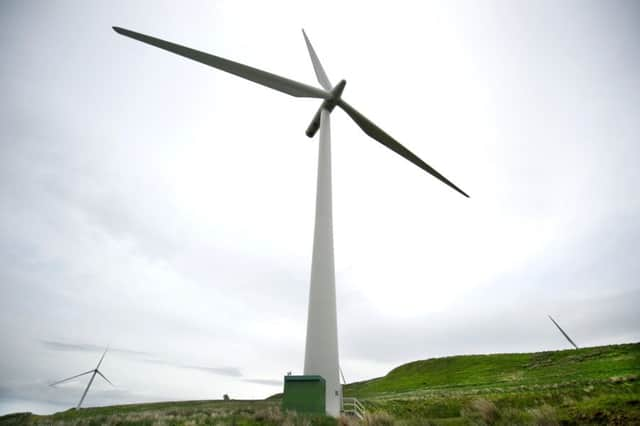Small scale wind farms at risk


Simply put, government policies making wind energy harder to deploy, will have the effect of making renewable energy more expensive.
A recent UK government report estimated there are 5,400 jobs in the onshore wind sector in Scotland with many more jobs supported or created across rural businesses that have diversified into farm-scale wind.
Advertisement
Hide AdAdvertisement
Hide AdIndeed, diversification to supplement base incomes is a priority for the rural economy, and for good reason. Gross incomes from farming are estimated to have fallen by 4.4 per cent between 2013 and 2014. In the same period, electricity prices for small non-domestic users increased by over 10 per cent. Falling commodity prices are putting even further stress on farm revenues, making survival a daily challenge.
Endurance Wind Power and EWT manufacture small scale wind turbines which help farmers and small businesses generate electricity on site to power their farms and drastically reduce energy bills, before selling any surplus to the National Grid.
The UK government has already announced changes to subsidies for large onshore wind farms, which, according to Scottish Renewables, could put at risk projects that could provide the equivalent electricity demand of 1.23 million Scottish homes, while bringing around £3 billion of investment.
Decisions made by UK government to date will have a disproportionate impact on Scotland, since around 70 per cent of onshore wind projects affected by policy changes are located here. And a new raft of policy reviews, this time targeted at farm scale renewables, now look set to start this summer which could mean more than half of the schemes currently proposed may not be implemented.
• Brett Pingree is commercial vice-president of Endurance Wind Power and Mark Jones is chief executive of EWT.